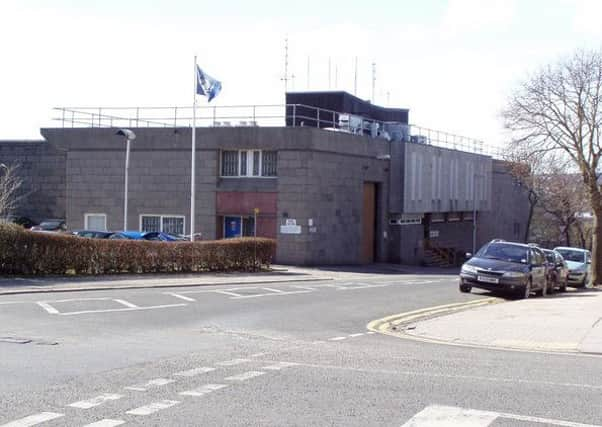Craiginches Prison closes doors for last time


The prison, once one of the most overcrowded jails in Scotland, is being closed as part of plans for the new £140 million “super jail” HMP Grampian which will open in March in Peterhead.
The last inmates at the Victorian prison, built 124 years ago, left Craiginches yesterday. Over recent weeks an estimated 200 prisoners have been transferred to Perth Prison and Barlinnie Prison in Glasgow.
Advertisement
Hide AdAdvertisement
Hide AdThe remains of Henry John Burnett, the last man to be hanged in Scotland, were buried in the grounds of the prison after he was executed at Craiginches on 15 August, 1963, following his conviction for the murder of his lover’s sailor husband, Thomas Guyan.
The Scottish Prison Service today confirmed that a final decision has still to be made about the possibility of Burnett’s remains being exhumed as part of the decommissioning plans for the jail.
A spokeswoman for the SPS said: “The site is going through decommissioning phase at the minute. No decision has been made as yet but obviously we will not start demolishing any buildings until a decision has been made.”
She stressed that “nothing would be done.” without consulting Burnett’s family.
Burnett was 21 when convicted of murdering Mr Guyan, a merchant seaman, by blasting him in the face with a shotgun. He was the only inmate of the Victorian prison to die on the prison’s gallows and the last man to be executed in Scotland before Westminster abolished the death penalty.
Burnett met Mr Guyan’s wife, Margaret, when they were working as filleters at John R Stephen Fish Curers in Aberdeen. She later went to live with him at his home in Skene Terrace.
Burnett kept Mrs Guyan locked in the house they shared and on one of the rare occasions she was allowed out alone she met her estranged husband and agreed to go back to him. When she refused to return to him, Burnett stole a shotgun from his brother’s house and killed Mr Guyan, on 31 May, 1963.
In his address to the jury, the solicitor-general spoke of the “sordid background of a sailor’s wife being unfaithful to her husband when he was at sea.”
Advertisement
Hide AdAdvertisement
Hide AdSix days before his execution, Burnett wrote: “Well, my darling, you will be wondering why I did not kill you up in Skene Terrace. Well, it was because I loved you. I could easily have done it if I had wanted to, but what they were saying in court was a heap of rubbish about me being insane even at the time. I knew exactly what I was doing.”
Chronic overcrowding at Craiginches was repeatedly highlighted in a series of reports on Craiginches by Scotland’s prisons watchdog in recent years.
Five years ago Andrew McLellan, the former Chief Inspector of Prisons, revealed that two thirds of the inmates freed from Aberdeen Prison tested positive for illegal drugs because of the flourishing narcotics trade behind bars.
He said that chronic overcrowding and staff shortages at the dilapidated prison had created the ideal conditions for a booming trade in heroin, cocaine, cannabis and other illegal drugs. Prisoners forced to spend long hours locked in their cells were turning to drugs to relieve the boredom.
The prison was originally designed to hold 154 inmates but, at its peak, was being used to incarcerate more than 250 prisoners.